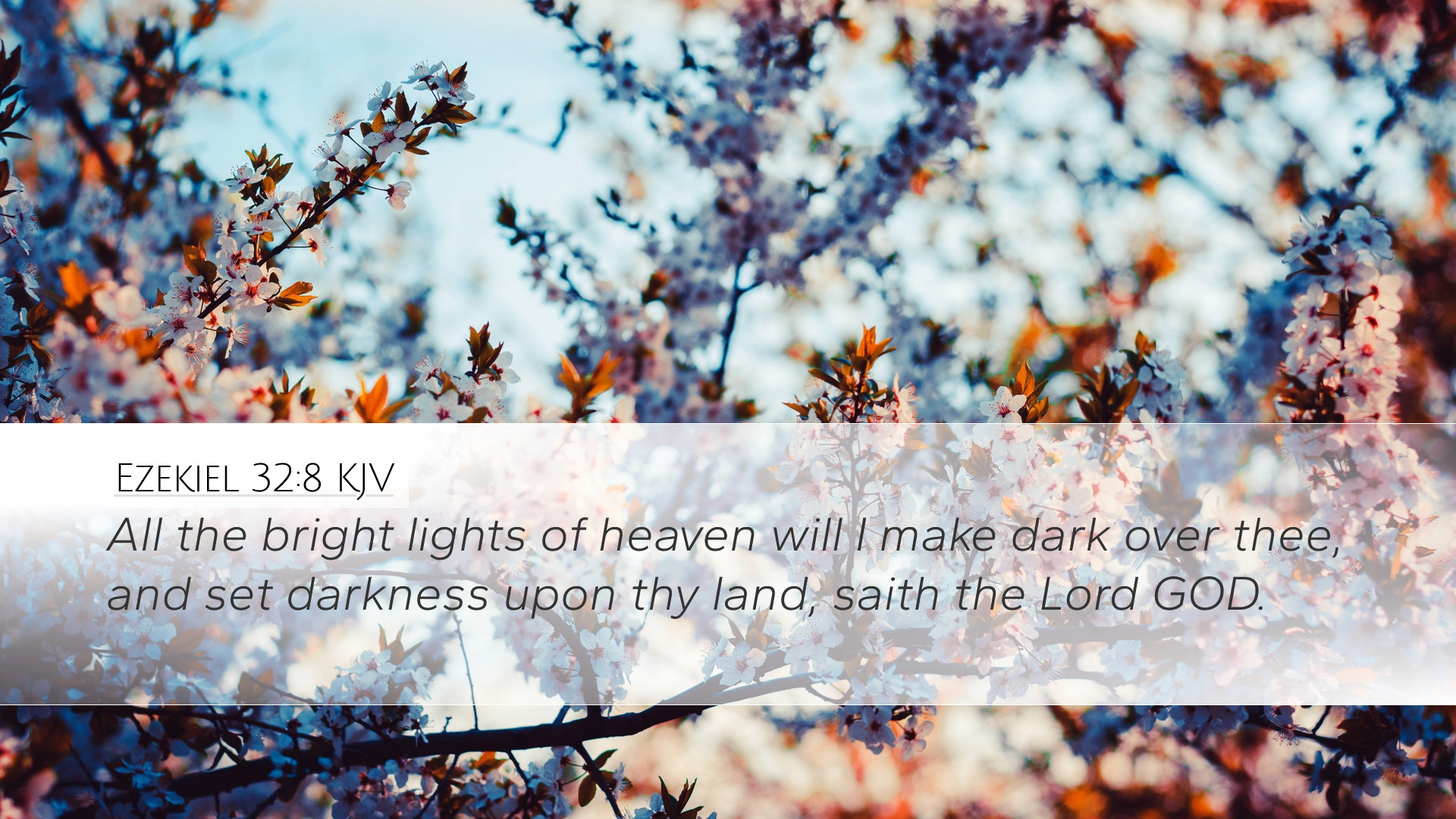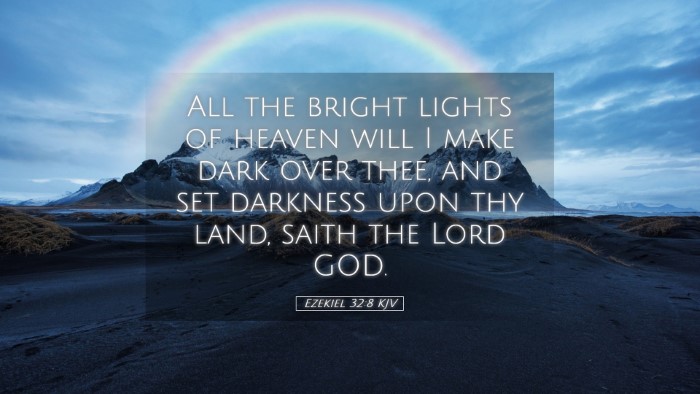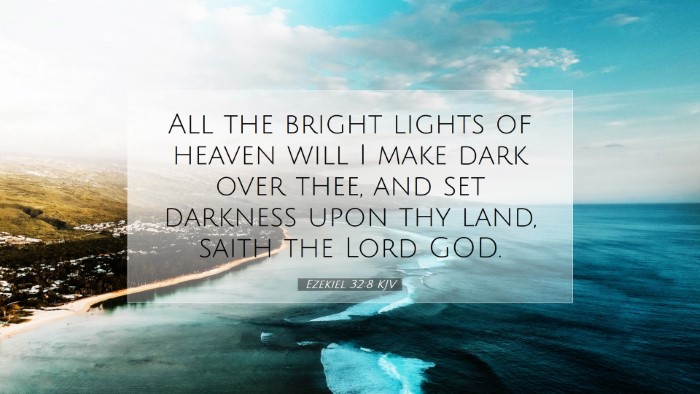Bible Commentary on Ezekiel 32:8
Ezekiel 32:8 states, "All the bright lights of heaven will I make dark over thee, and set darkness upon thy land, saith the Lord GOD." This verse encapsulates a profound message of divine judgment and cosmic upheaval, evidenced through various public domain commentaries.
Matthew Henry's Commentary
Matthew Henry discusses this verse in the context of God’s judgment upon Egypt, likening it to the natural phenomenon where the sun, moon, and stars are obscured. He emphasizes that the 'bright lights of heaven' represent the glory and favor of God, which are withdrawn from a nation due to sin and disobedience.
- The Nature of Judgment: Henry notes that darkness often symbolizes judgment; it is a removal of light, which in biblical terms often signifies guidance, truth, and holiness.
- Theological Implication: The withdrawal of celestial light is indicative of God’s severe displeasure. It reflects the inevitable consequences of turning away from God’s ways.
- Application: For contemporary readers, this serves as a sobering reminder of the spiritual darkness that ensues when nations or individuals reject divine wisdom.
Albert Barnes' Notes
Albert Barnes interprets this passage with a focus on the metaphorical significance of the celestial bodies. He states that the 'bright lights' symbolize the majesty and power that will be obliterated in judgment.
- Cosmic Imagery: Barnes offers a vivid portrayal of how the heavens are affected by human actions. The darkness in the heavens is a visual presentation of God’s judgment on earthly kingdoms.
- The Finality of Judgment: According to Barnes, the phrase indicates not just any darkness but a profound and palpable absence of hope and divine light, suggesting an end to the prosperity and glory that Egypt enjoyed.
- Historical Context: This judgment aligns with historical occurrences where nations faced devastations and decline, serving as a cautionary tale for future generations.
Adam Clarke's Commentary
Adam Clarke provides a careful analysis of the phraseology in Ezekiel 32:8, noting the impending doom awaiting Egypt due to its idolatry and arrogance against God.
- The Symbol of Darkness: Clarke explains that darkness here does not merely refer to the absence of light but implies despair and the withdrawal of God’s grace. It is a strong indication of divine judgment.
- Theological Reflection: The reference to heavenly lights being darkened can relate to the idea that human power and glory are ultimately futile when standing in opposition to God’s will.
- Modern Application: Clarke highlights that societies today face similar judgments when they exalt themselves above divine ordinances, leading to spiritual and moral decay.
Thematic Insights
The commentary from these prominent scholars communicates several key themes that emerge from Ezekiel 32:8:
- Judgment as a Theme: The verse is rooted in the theme of divine judgment, encapsulating God's righteous response to sin and rebellion.
- Cosmic Symbolism: The imagery of darkness reflects a broader biblical motif where light represents divine presence and favor while darkness denotes judgment and abandonment.
- Historical Accountability: Echoing through history, nations tend to reap what they sow. A rejection of divine guidance results in societal darkness and impending doom.
Conclusion
Ezekiel 32:8 serves as a powerful reminder of the perils of spiritual negligence. Through the insights of Matthew Henry, Albert Barnes, and Adam Clarke, we see that darkness enveloping the heavenly lights echoes God's serious call to repentance and the significance of adhering to divine authority.
The gravity of this passage resonates not only in the historical context of Egypt but also bears implications for contemporary faith communities. It reminds pastors, theologians, and believers alike of the inherent dangers in straying from God’s light, urging all to seek restoration and embrace the guiding truths of Scripture.


